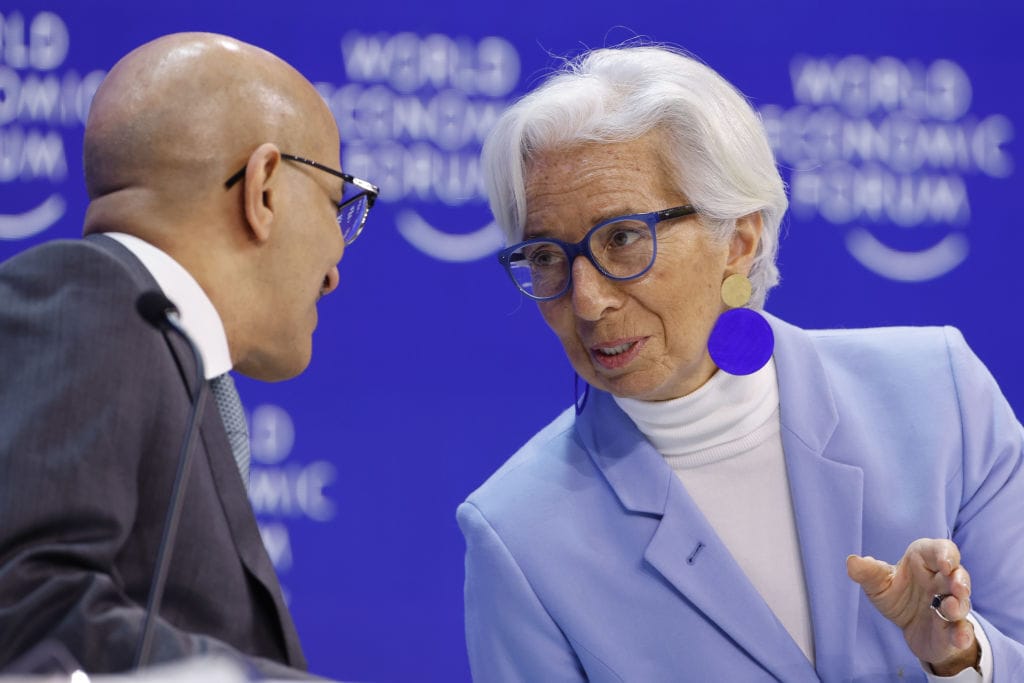In the headlines
The US and Britain carried out a second wave of airstrikes on Yemen’s Houthi militia last night, with four RAF Typhoons targeting two military sites near the capital Sana’a. The Houthis say the strikes “will not go unanswered or unpunished”. A new blood test for detecting Alzheimer’s could “revolutionise” diagnosis of the disease, says The Guardian. A Swedish study was able to accurately measure levels of the protein p-tau217 in the blood, which can indicate the likelihood of someone developing the condition up to 15 years before symptoms start showing. A Royal Navy warship crashed into another because faulty engine controls sent it backwards rather than forwards, says The Daily Telegraph. Dodgy wiring meant the minehunter HMS Chiddingfold smashed into HMS Bangor in Bahrain last week, ripping a hole in its hull.

X/@MilitaryBanter
Comment

Displaced Palestinians near the Egyptian border. Abed Zagout/Anadolu/Getty
Give Gaza’s trapped civilians a way out
Gaza is “unique among modern war zones”, says Eugene Kontorovich in The Wall Street Journal. In the months after Russia invaded Ukraine, 3.5 million Ukrainians applied for temporary residence in countries like Poland and Germany. The Syrian civil war produced five million refugees – almost a quarter of the country’s prewar population – and the US invasion of Iraq produced two million. The right to flee a war zone and seek asylum in a neutral country is enshrined in the 1951 UN Refugee Convention. Yet in three months, Hamas and Egypt have allowed fewer than 1,000 people to leave Gaza.
Egypt has “sealed its border”, while Hamas “forcibly prevents people from leaving”. The West can’t exactly tell Hamas what to do, but Egypt is the second-largest regular recipient of US aid. By not putting pressure on Cairo to open its doors, Washington is wasting “huge leverage”, and allowing Gazans to be “trapped against their will” in a terrifying war zone. Hamas knows that people don’t want to live in the “jihadist dystopia” it has created. Even before the war, a Palestinian research group found that “nearly half of Gazans would leave if they could”. If those who want to escape were free to do so, it would reduce human suffering and rob the terrorist group of its human shield. And it would be an incentive for any postwar government to make the Gaza Strip somewhere Palestinians wanted to come back to, not just somewhere they weren’t allowed to leave.
Photography
Finalists and winners of the 2023 Nature Photography Contest include pictures of a sea lion posing in front of a school of fish in Mexico; a puffin walking on a cliff in Iceland; a leopard cub sticking out its tongue in Sri Lanka; a turtle blowing bubbles in the Cook Islands; and a disgruntled-looking owlet emerging from the hollow of a tree in Thailand. See more here.
Inside politics
If the polls are to be believed, says Stephen Bush in the FT, at the next election roughly one in 10 British voters will support Reform UK, the rebranded Brexit Party. Except, having travelled the country asking people how they’ll vote, I’ve met just one person who has said they’ll be doing so. That figures: in by-elections, Reform have done “significantly worse” than Ukip or the Brexit Party in their respective heydays. Many supposed Reform voters probably just don’t know who they’ll support yet. And many may well decide to stick with the Tories “for fear of something worse”.
Enjoying The Knowledge? Click below to share
From the archives

This faintly dizzying video of astronaut Alan Bean enjoying weightlessness on the short-lived Skylab space station in 1973 has racked up more than 280,000 views on X (formerly Twitter). See the full clip here.
Comment

ECB president Christine Lagarde probably saying something banal to the Saudi finance minister at Davos. Stefan Wermuth/Bloomberg/Getty
Davos elites are “winging it” like the rest of us
Just what exactly were the elites “talking and scheming about” at the World Economic Forum in Davos last week, asks John Harris in Politico. Very similar things to most people, it turns out: American is faced with a bad choice between Joe Biden and Donald Trump; universities have “gone bonkers with cancellations”; artificial intelligence has “downright scary” implications for society. The summit was filled with “deep, billowy drifts of alpine conventional wisdom”. The truth about the masters of the universe, at Davos or elsewhere, is that their views are just as banal as those of anyone who follows the news.
There’s a youthful tendency to believe these people “have access to hidden pathways of information and world-shaping insight” about finance or geopolitics. But then we grow up, and some of us start hanging around elites, and we realise they aren’t drip-fed secrets “from deep within the intelligence community” – they just read The New York Times every morning. It’s a revelation that comes with a measure of disappointment (“Really, this is what a master of the universe is like?”) and also satisfaction, because we realise there’s little need to defer to their non-existent wisdom. The bank branch manager and global bank CEO usually come from the same “cultural soil”, and share the same centrist, technocratic politics, just as many “well-educated, reasonably comfortable professionals” do. That’s the real lesson from elite talking shops like Davos: “Everyone is winging it.”
Noted

Letters
To The Times:
I doubt I was the only Times reader left speechless by the report that the government will “find” another 150 judges to help to clear the asylum appeal backlog, as part of its efforts to implement the Rwanda policy. In a briefing last October, the Institute of Government showed that the backlog in the crown courts in England and Wales was now at an all-time high, with 28% of cases delayed by more than a year and 10% by more than two years. Rishi Sunak needs to understand that justice delayed is justice denied. May we now expect to see similar urgency in tackling this really serious backlog in the crown courts?
Jack Straw, Lord Chancellor 2007-10
Snapshot

Snapshot answer
They’re characters from The Simpsons, reimagined as real people using AI image software Midjourney. The graphic artist responsible, known online as “Princess Prompt”, described each character in incredibly precise detail to get the results she wanted, says PetaPixel. She had to be careful not to let on that she was trying to create Simpsons characters, as that would have given her “cartoonish” results. To get a human-like Marge Simpson, for example, she asked for “a mature woman with a curly blue beehive-style haircut”. See more here.
Quoted
“A statesman is a politician who’s been dead ten or 15 years.”
Harry S Truman

